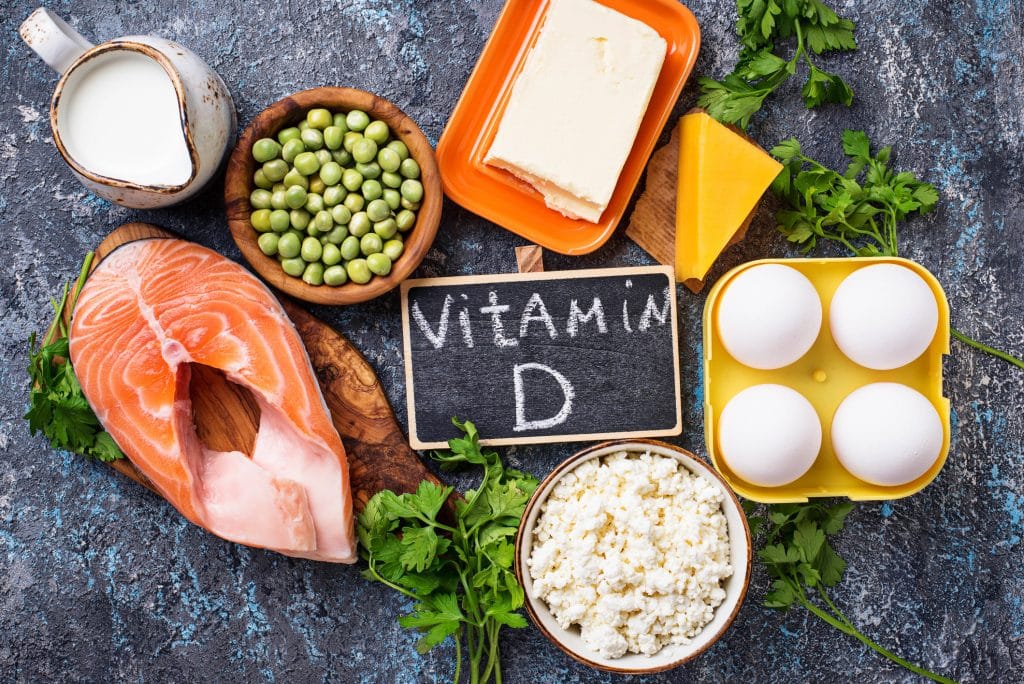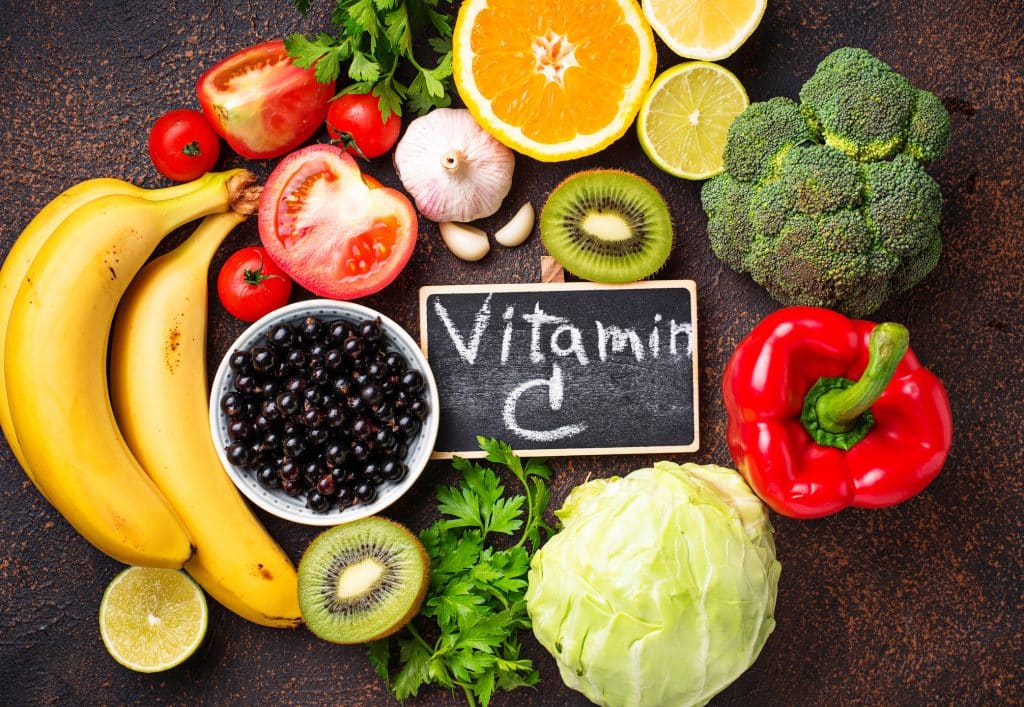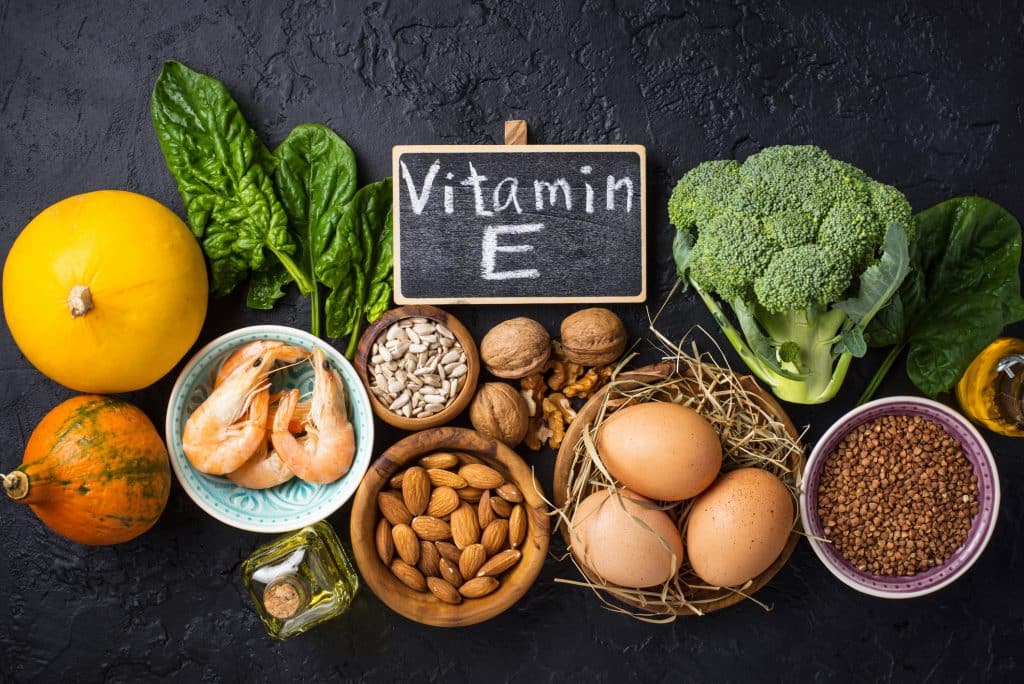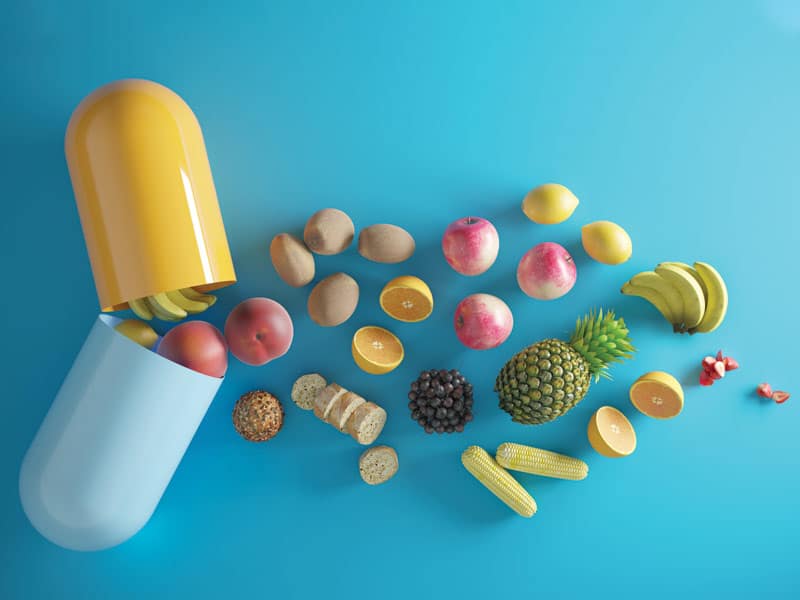Until a coronavirus vaccine becomes universally available, masks and our immune systems are all that stand between us and COVID-19. But there’s another V-word that may help boost our natural defenses and ward off a severe infection: vitamins.
Here are some suggestions for which vitamins are worth supplementing, and which most likely are not, from dietitian Carey Shore, MS, RD, LD, wellness coach and program coordinator at Methodist Health System.

VITAMIN D
During the pandemic, Vitamin D was making headlines even before the nation’s foremost immunologist Anthony Fauci, MD, acknowledged taking supplements.
And if there’s one vitamin many of us don’t get enough of, it’s Vitamin D — which is not technically a vitamin but a hormone naturally produced by our kidneys to regulate calcium in our blood.
Unlike many vitamins that find their way into a healthy diet, most of us get only a fraction of the Vitamin D we need in food (think fish or Vitamin D milk). And thanks to many of our lifestyles, we don’t get enough sunshine — the crucial ingredient our bodies need to manufacture the hormone.
“It is challenging to get enough Vitamin D in our diets as it is not abundant in our food supply,” Shore says, “and many of us do not get adequate sun exposure.”
Sunlight synthesizes the hormone, so if you don’t get outdoors enough — whether because it’s wintertime or because you work at a desk all day — you may need a pick-me-up to give your immune system a boost. That’s especially so during cold and flu, and now, COVID-19 season.
“Research has demonstrated a decreased risk of respiratory tract infections with Vitamin D supplementation.” – Carey Shore, MS, RD, LD, wellness coach and program coordinator at Methodist Health System
There’s a second way Vitamin D may prevent the worst cases of COVID-19: by warding off “cytokine storms,” a self-destructive chain reaction in our immune systems.
Vitamin D helps regulate the immune system and, with it, the cytokine proteins that act as messengers between cells. Such proteins play a crucial role in how the body responds to infections.
In some of the worst COVID-19 cases, doctors have watched this delicate balance run amok, overreacting to the infection by flooding the system with cytokines. That ultimately causes the body’s natural defenses to attack healthy tissue.
Further study is needed to prove Vitamin D can help stop this chain reaction, but researchers have found Vitamin D deficiencies in COVID-19 patients who suffer the worst infections.
The recommended daily amount of Vitamin D is 400 international units (IU) for children up to age 12 months, 600 IU for ages 1 to 70 years, and 800 IU for people over 70, according to the Mayo Clinic.

VITAMIN C
Unlike Vitamin D, most of us get the Vitamin C we need simply by maintaining a healthy diet, Shore says.
“Provided that you consume a few servings of vitamins and minerals daily, you will get more than enough Vitamin C,” she says.
For every study that claims Vitamin C is the antioxidant to end them all, there’s another saying it has little benefit. That said, there’s no harm in supplementing your intake.
Just know you might be better off skipping that giant pill and spending your money on fresh produce so you can pack more nutrients into your diet naturally.
The Mayo Clinic recommends 90 milligrams a day for adult men and 75 milligrams for women.

VITAMINS E AND B
Vitamin E is a potent antioxidant found in almonds, avocados, and legumes. Vitamin B, in its various forms, can be found in many fruits, as well as leafy vegetables, beans, and peas.
Like most vitamins, these two help maintain a healthy immune system, and there’s even been some research suggesting Vitamin B6 can help balance our immune response to infection, potentially heading off a cytokine storm and activating T cells that fight infection.
But Shore says the bottom line on these two vitamins is to get what you need from your diet and skip the supplement. That is unless you’re pregnant and your doctor recommends you get more Vitamin B with folic acid.
“Supplementing with these nutrients has not been shown to be beneficial unless there is a deficiency,” Shore says.
WATCH OUT FOR MEGADOSING
Finally, a few words of warning from Shore about the risk of megadosing vitamins.
“There’s no evidence to suggest that consuming more vitamins than you need will protect you in any way,” she says. “In fact, it could cause other health problems.”
The 13 vitamins our bodies need fall into two categories: water-soluble and fat-soluble.
Most vitamins are water-soluble, meaning they quickly dissolve in water. They’re easily absorbed and just as easily expelled. Your body uses what it needs, and your kidneys filter out and excrete the rest.
Usually getting too many water-soluble vitamins does no harm, but if you really overdo it, you’re risking cramps, nausea, and even kidney stones.
There are four fat-soluble vitamins: A, E, K, and D. These vitamins are like oil in water and easily enter your bloodstream, especially when consumed with fatty foods. What you don’t need immediately gets stored in your body for use later.
Take too much of these, however, and you’re risking digestive problems and, in extreme cases, Vitamin D intoxication and dangerous levels of blood calcium.
As always, it’s best to consult your doctor to ask whether you might have a deficiency or if you’re worried you’re getting too much of a good thing.

